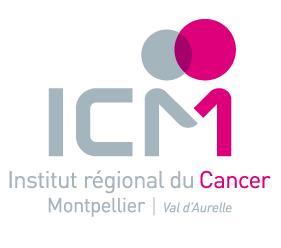Antibodies against the multifaceted cathepsin D protein open new avenues for TNBC immunotherapy
Résumé
Triple-negative breast cancer (TNBC) is a heterogeneous breast cancer subtype characterized by aggressive clinical behavior and poor prognosis. The immune landscape associated with TNBC often reveals high immunogenicity. Therefore, immunotherapy, which has demonstrated its efficacy in different cancer types, could be a promising strategy for TNBC, given the limited therapeutic options currently available besides conventional chemotherapy. The aspartic protease cathepsin D (cath-D) is a tumor cell-associated extracellular protein with protumor activity, a marker of poor prognosis, and a target for antibody-based therapy in TNBC. This commentary provides a synopsis/narrative summary of the development of anti-cath-D antibodies in different formats, their key roles in restoring the antitumor immunity, particularly via activation of tumor-infiltrating natural killer cells, and their dual antitumor effects on cancer cells and stromal cancer-associated fibroblasts, suggesting their interest for clinical use in the light of the current clinical knowledge on TNBC.
Fichier principal
 Desroys du Roure et al- JITC 2025-Commentary-Version HAL.pdf (1.16 Mo)
Télécharger le fichier
Desroys du Roure et al- JITC 2025-Commentary-Version HAL.pdf (1.16 Mo)
Télécharger le fichier
| Origine | Fichiers produits par l'(les) auteur(s) |
|---|




